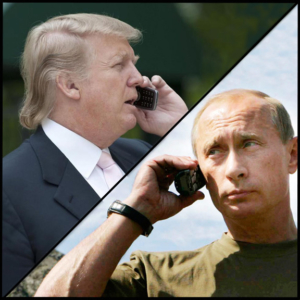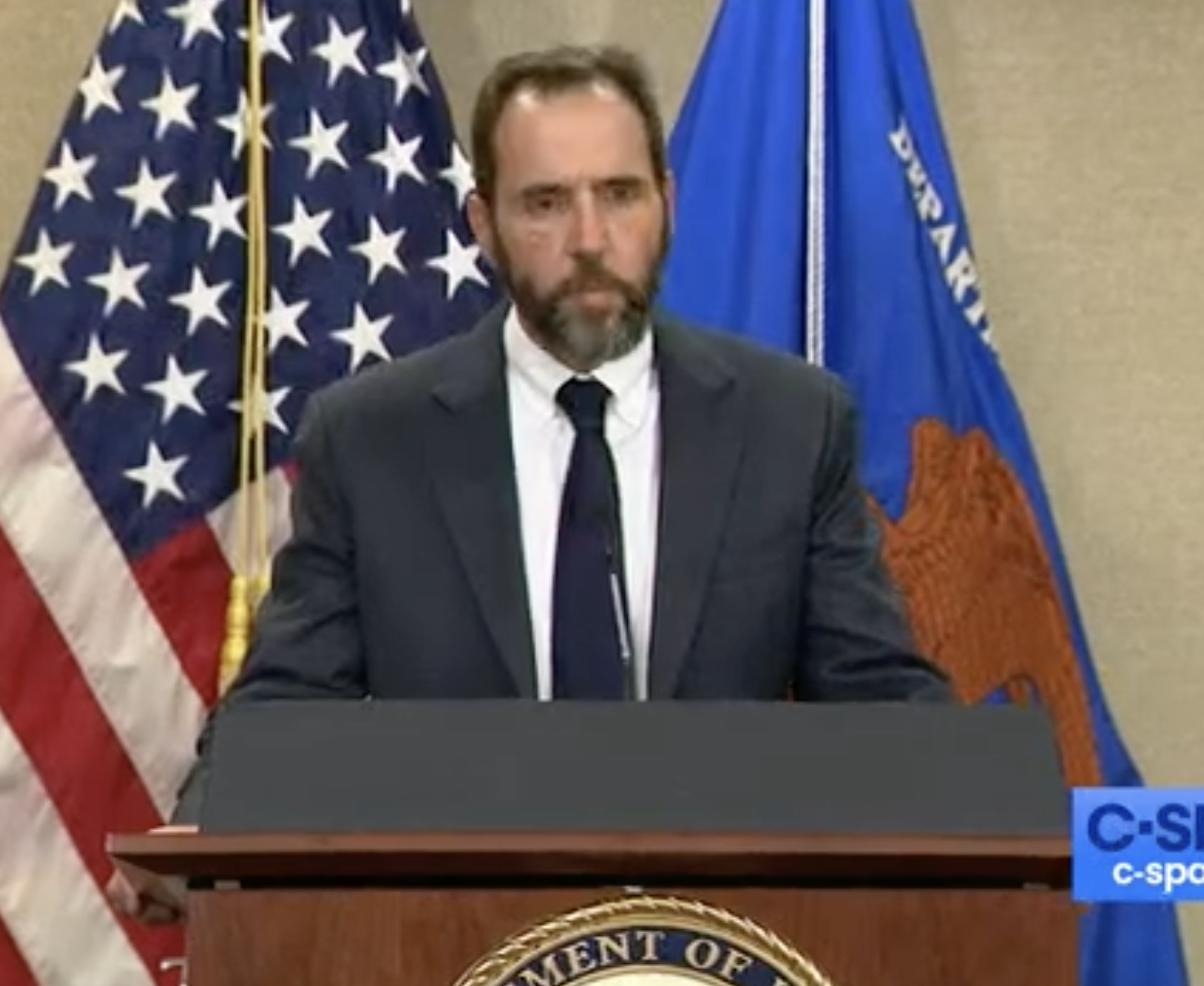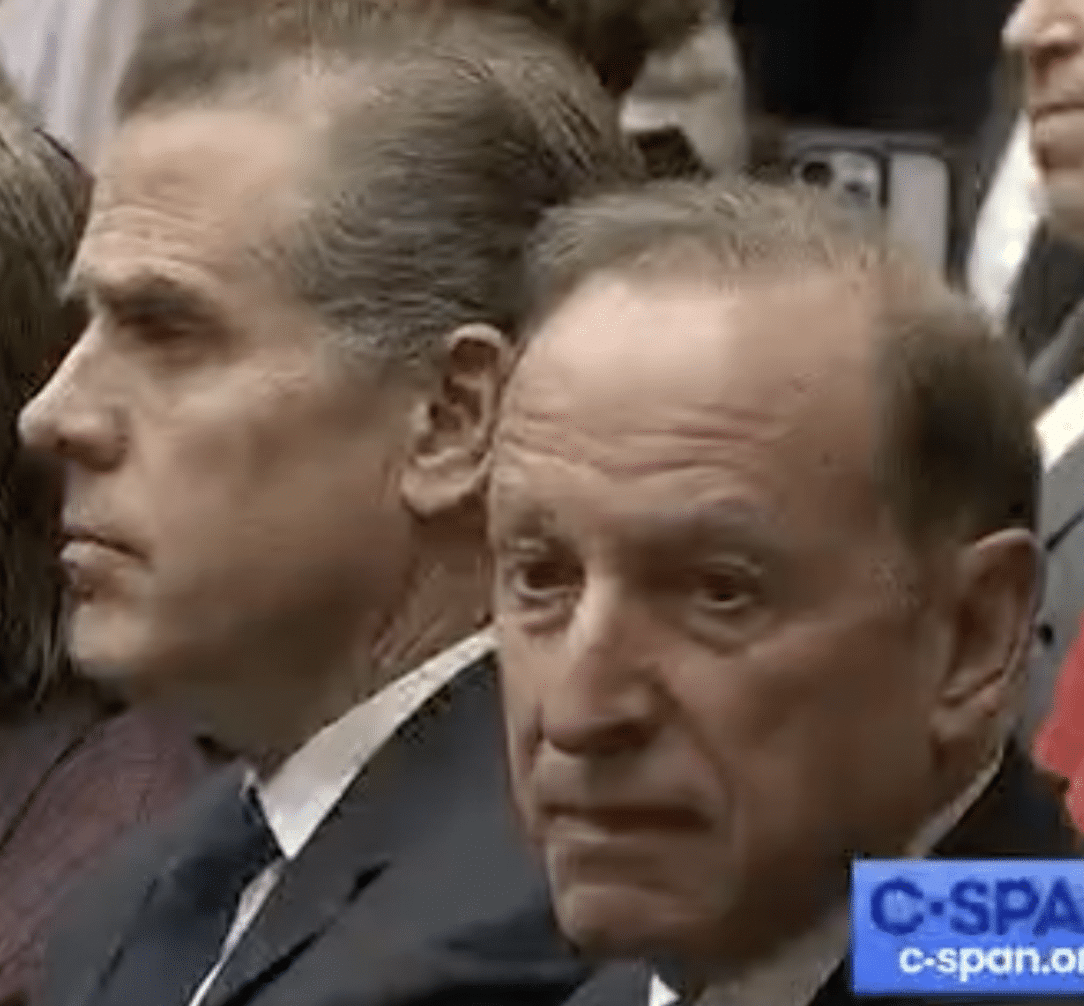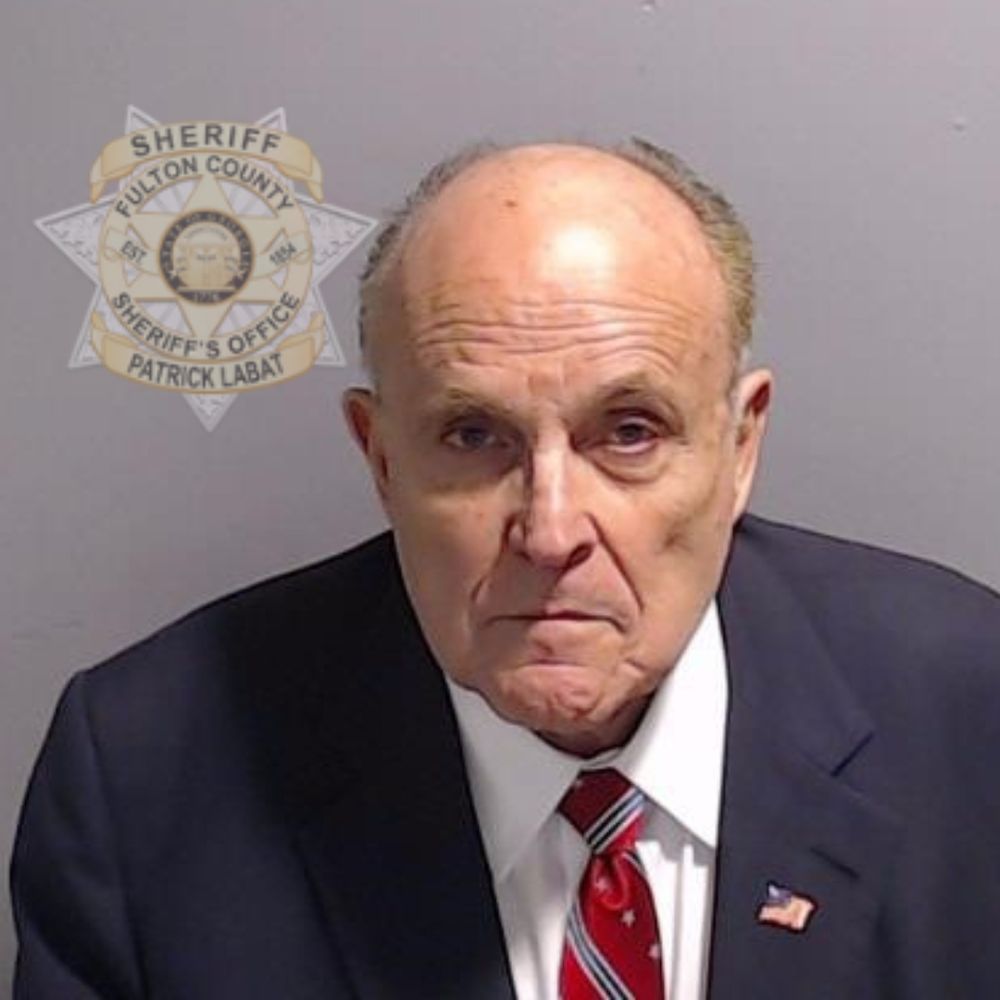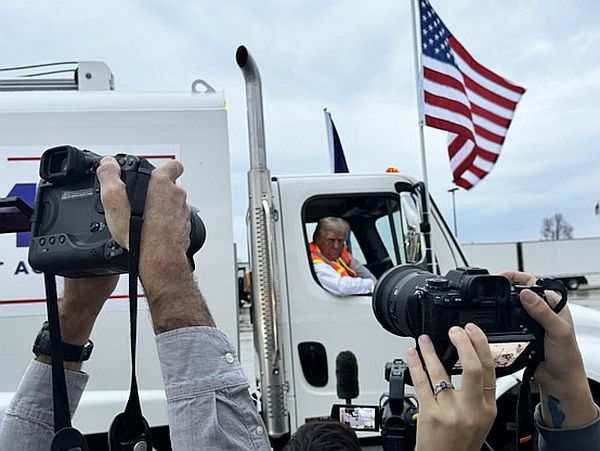How Garland-Whinger Ankush Khardori’s Willful Impotence Helps Trump Evade Accountability
There’s a telling quote from Greg Sargent in his description of Kamala Harris’ difficulties in convincing voters that Trump was a bad president.
Some Democrats believe that the leading pro-Harris Super PAC, Future Forward, failed to spend enough of its enormous budget on advertising early on that might have reminded voters of the horrors of the Trump presidency. That perhaps allowed him to slowly rehabilitate himself and edge up his favorable numbers while Democrats weren’t looking.
“There was a calculation among Democrats after 2020 that Trump was disqualified and wouldn’t be back,” Democratic data analyst Tom Bonier told me. “That evolved into a calculation that he would be disqualified by his legal troubles and could end up in jail. Democrats undeniably failed to disqualify him. The result was that by the time the Harris campaign started, it was too late.”
“Was disqualified … would be disqualified … failed to disqualify.”
Bonier is just one person. But the passivity he describes on the part of Democrats expecting and hoping that some magic unicorn would just make the problem of Donald Trump go away is telling. As described, Democrats as a party apparently abdicated all agency for making that case themselves until it was far too late.
It is precisely the reason I’m so impatient with the Merrick Garland whinger industry, which has flourished again since Trump’s win: because they replicate precisely the impotence that got us here. They always asked that Garland do the work, singlehandedly, of making Trump go away, without considering the political groundwork that was necessary to any successful legal case.
Take Ankush Khardori’s description of Trump’s legal impunity. After laying out that, with his election, Trump’s legal troubles will now go away, with which I mostly agree, Khardori then lays out his three culprits: Merrick Garland, Mitch McConnell, SCOTUS.
His culprits are not in temporal order; if McConnell — who had an immediate way to disqualify Trump from further office — had engaged in an impeachment effort, DOJ would have had more time to prosecute.
They’re not in order of culpability. He addresses SCOTUS’ actions in four paragraphs close to the end of his rant. He ignores how their interventions on the Colorado case and Fischer also affected DOJ’s options, and never mentions precisely how long they stalled the case: eight months, with a guarantee of more on the back end. Once you address SCOTUS’ delays and rewriting of the Constitution, it’s not clear a case could ever have been brought before an election, even ignoring how COVID stalled everything for a year, to say nothing of bringing an insurrection charge that would be (per the Colorado decision) the only thing that could disqualify Trump from office. If that’s the case, it wouldn’t matter whether Garland or a gun-toting Adam Schiff, as prosecutor, were in charge. SCOTUS’ intervention, assuming it would have been the same whether it happened in 2021 or 2022 or 2023, was decisive. Trump’s judges made a prosecution of him before the election impossible and further ruled that the only thing that could disqualify him was an insurrection charge.
Instead of focusing primarily on the main culprits, Khardori prioritizes what he imagines was Garland’s role over that of McConnell and — astonishingly — SCOTUS.
And as is typical with Garland whingers, his indictment of Garland is riddled with problems (and, as the red typeface I used to mark links to his own past pieces shows, his own bellybutton lint).
It is now clearer than ever that Garland was a highly questionable choice to serve as attorney general from the start. From the outset of the Biden presidency, it was readily apparent that Garland had little desire to investigate and potentially prosecute Trump.
The most comprehensive accounts on the matter, from investigative reporting at The Washington Post and The New York Times, strongly indicate that the Jan. 6 committee’s investigation and public hearings in 2022 effectively forced Garland to investigate Trump and eventually to appoint Smith in November of that year — nearly two years after Trump incited the riot at the Capitol.
There are many people — including many Democratic legal pundits — who have continued to defend this delay and may continue to do so, so let me be very clear: Those people are wrong.
It was clear after Trump’s loss in 2020 — even before Jan. 6 — that his conduct warranted serious legal scrutiny by the Justice Department, particularly in the area of potential financial crimes. But that probe, which could and should have been pursued by Biden’s U.S. Attorney and aspiring attorney general in Manhattan, somehow never materialized.
It was also clear — on Jan. 6 itself — that Trump may have committed criminal misconduct after his loss in 2020 that required immediate and serious attention from the Justice Department.
The formation of the Jan. 6 committee in early 2021 did nothing to change the calculus. There too, it was clear from the start that there would still need to be a criminal investigation to deliver any meaningful legal accountability for Trump.
In fact, the warning signs for where this could all end up — where the country finds itself now — were clear by late 2021, less than a year into Biden’s term. The public reporting at the time indicated (correctly, we now know) that there was no real Justice Department investigation into Trump and his inner circle at that point, even though the outlines of a criminal case against Trump — including some of the charges themselves that were eventually brought nearly two years later — were already apparent.
As a result, the Biden administration and the Garland Justice Department were running an extremely obvious risk — namely, that Trump would run for reelection and win, and that any meaningful criminal accountability for his misconduct after 2020 would literally become impossible. That, of course, has now happened. It was all eminently predictable.
Garland’s defenders over the years — including many Democratic lawyers who regularly appear on cable news — claimed that Garland and the department were simply following a standard, “bottom-up” investigative effort. Prosecutors would start with the rioters, on this theory, and then eventually get to Trump.
This never made any sense.
It did not reflect some unwritten playbook for criminal investigations. In fact, in criminal cases involving large and potentially overlapping groups of participants — as well as serious time sensitivity — good prosecutors try to get to the top as quickly as possible.
The Justice Department can — and should — have quickly pursued the rioters and Trump in parallel. The fact that many legal pundits actually defended this gross dereliction of duty — and actually argued that this was the appropriate course — continues to amaze me.
As for Garland, his legacy is now out of his control, and the early returns are not looking good.
Garland is a serious, well-intentioned and complex figure. But given all this, he may go down as one of the worst and most broadly unpopular attorney generals in American history — hated by the anti-Trump part of the country for failing to bring Trump to justice, and hated by the pro-Trump part of the country for pursuing Trump at all. I sincerely hope he provides a first-hand accounting of what happened after he too leaves office next year.
The only sources of information on the investigation Khardori cites (aside from his own posts about what he could see without looking) are a WaPo and a NYT article. From both, only Glenn Thrush, a political journalist rehabilitated to the DOJ beat, covered the Trump case closely; none covered the larger investigation.
The WaPo article, which fairly obviously relies heavily on sources from the January 6 Committee members and people who left DOJ when Garland came in, has a number of problems I’ve laid out before (one, two, three).
- It missed the significance of Brandon Straka, whose “cooperation” I believe was mishandled, but had it not been, might have gotten you into the Willard in March 2021.
- It focused on the Oath Keepers and almost entirely ignores the Proud Boys, and in the process misunderstands the specific role they played, the ways DOJ under Bill Barr had made their prosecution far harder, and their importance to any hypothetical insurrection charge (because they kicked off the insurrection before Trump did, a problem impeachment prosecutors faced).
- It ignored the decisions DOJ made with Rudy Giuliani’s phone — which was seized with a warrant obtained on Lisa Monaco’s first day on the job — which made that content, including content J6C never got, available to DOJ starting in November 2021.
- It ignored the way DOJ, in August 2021, opportunistically used the prior Deferred Prosecution Agreement of Alex Jones sidekick Owen Shroyer to arrest and exploit the phone of someone who otherwise would likely be protected under media guidelines.
- It ignored the overt investigative steps against Sidney Powell taken no later than September 2021.
- It ignored a subpoena that was overt in May 2022, which included people who were not immediately a focus of J6C (and so not derivative of that investigation), as well as warrants dating no later than May 2022 targeting (among others) John Eastman. Since then, thanks to Khardori’s colleagues at Politico who do cover these investigations, we’ve learned the exact date that kicked off over ten months of Executive Privilege fights to get the testimony of 14 of Trump’s closest aides: June 15, 2022, one day before J6C interviewed those same witnesses: Marc Short and Greg Jacob. Which is to say, WaPo’s timeline even of known investigative steps is off in a way that suggests DOJ was entirely derivative of J6C, which it could not have been.
- Perhaps predictably, given the obvious reliance on J6C sources, it didn’t talk about how their decision to delay sharing transcripts from April until December 2022 withheld information both helpful and crucial from criminal investigators.
More importantly, WaPo focused on Steve D’Antuono’s hesitancy to turn to the fake electors, even as DOJ was pushing to do so. Which is to say that D’Antuono — someone no longer at DOJ — was the key cause for delay, not Garland.
So there are a lot of problems with the WaPo story that Khardori, if he had actually tracked the investigation or followed those of us (including Politico’s own reporters) who do, should have known.
But Khardori didn’t even need to do that to understand that the WaPo had blind spots. That’s because the NYT story describes two prongs of the investigation, started in 2021, that don’t make the WaPo. It describes that,
- Garland encouraged investigators to follow the money in his first meeting with them, though that turned out to be largely a dead end (note: Garland publicly implied that investigators were following the money in October 2021).
- By summer of 2021, Lisa Monaco convened a team focusing on John Eastman, Boris Epshteyn, Rudy, and Roger Stone.
The NYT story missed a lot of what I included above, too (though not the Proud Boys), but it tells a very different story about efforts to focus on people close to Trump in 2021 than the WaPo did.
In spite of the NYT description of two prongs of the investigation that started in March and summer 2021 that attempted to get directly to those in Trump’s orbit, Khardori spent four paragraphs of his complaint claiming that DOJ had exclusively tried to work their way up from rioters. That’s not what the public record shows, it’s not what NYT says happened, it’s not what public reports on the Powell subpoenas say, it’s not what Garland said in October 2021 testimony. And yet that is the basis Khardori uses to condemn Garland. Further, the NYT describes that, in his first meeting with investigators, Garland, “said he would place no restrictions on their work, even if the ‘evidence leads to Trump,'” That statement is inconsistent with most of Khardori’s first two paragraphs on Garland. The Attorney General told investigators from the start he had no problem investigating Trump. Yet Khardori still links his own past work and claims vindication, rather than confessing that, if the NYT piece he relies on is accurate, he was wrong.
Which is to say, Khardori doesn’t claim to (and shows no signs of) having reviewed how the investigation actually happened. That’s not his job, I guess, as a legal journalist. Instead, he relies on two sources, one of which partly debunks the other, as well as countering his own claim about Garland’s unwillingness to investigate and his four-paragraph argument that Garland should have pursued multiple routes to Trump but did not.
There are facts. And Khardori chooses to ignore them, clinging instead to past assertions that he falsely claims have been vindicated.
It’s the most irresponsible kind of laziness. Without having learned what really happened, Khardori concocts out of his uncertainty and frustration broad judgements that support his priors but are inconsistent with the public record. Via that invented theory to explain the scary unknown, Merrick Garland remains his primary villain, not John Roberts, not Mitch McConnell.
Poof! Thousands of clicks, each time misleading another despondent reader, encouraging helplessness.
Having made Garland his villain, he proclaims defeat.
I am, if anything, more furious than Khardori that Trump will not face legal accountability for his alleged crimes, because I know the kind of insurrectionists whose likely pardons will effectively flip patriotism on its head, valorizing Trump over country. This is a potentially irreparable blow to rule of law in the US.
But I’m not ready, as Khardori seems to be, to concede defeat. That’s because legal accountability is not the only recourse; indeed, we were never going to get legal accountability without first demanding political accountability. That’s the mistake many made: by looking passively at Merrick Garland and begging for a sparkle unicorn to make Trump go away, many failed to take steps, themselves, to hold Republicans to account for abandoning rule of law.
Consider how Khardori disempowers himself elsewhere in his column. Here’s how he describes Jack Smith’s closure of the case.
Already there is reporting suggesting that special counsel Jack Smith will leave his post and dismiss the pending cases, which is not that surprising considering that Trump pledged to fire him once back in office anyway.
He describes this as driven by Trump’s threat to fire Jack Smith, not DOJ regulations that prohibit further prosecution. He doesn’t link or consider any of the reports that lay out the obvious: by stepping down rather than waiting to get fired, Smith obliges himself to write a report. He chooses how he will go out. Admittedly, Khardori published his piece before last week’s filing that suggests we’ll have, at least, clarity by early December which, if it were the actual report, would (among other things) be early enough to hold a hearing.
That’s not going to change Trump’s win. But it provides an opportunity to lay a marker in the sand: This is what Republicans have chosen to enable going forward. This is what Republicans have chosen as a party to become.
It lays a marker for the two other villains in Khardori’s column: McConnell and the other Senate Republicans who refused to convict Trump, and John Roberts and his colleagues who vastly expanded his power without even knowing what Jack Smith had discovered.
Fresh off a big electoral victory, I doubt any will much care. But when the obvious repercussions come — when a guy who stored nuclear documents in a coat closet further compromises US security — the report and the hearing provide a marker that those who failed to stop Trump were warned and chose to do nothing (or worse, on the part of SCOTUS, chose to give him more power).
One of the only remaining possible checks on Trump’s power are the people in the Senate and SCOTUS who failed to check him on these alleged crimes before (though SCOTUS did check some of his other initiatives the first time around). We won’t soon persuade any of them to change their minds. But that doesn’t mean we stop trying — or at least laying a record of their complicity. In that path lies capitulation.
All the more so given that Roberts and his colleagues will be the villains in many more stories that have direct impact on people’s lives going forward.
Donald Trump is about to do a great deal of outrageous things at the start of his term to reverse the treatment of January 6 as a crime. The response cannot be to say, ho hum, if only that awful Merrick Garland would have yelled louder, and give up, especially not when no amount of yelling was going to change what SCOTUS did.
The response is to stop hoping for a sparkle unicorn to do this work for us. The response is to take some agency for making the case about Donald Trump. And a first step in that process is to stop blaming Garland for things — the public record shows — he didn’t do, and especially to stop blaming Garland for things that more important villains, like John Roberts, did do.
The first step to effective accountability is to identify the actual villain.
Update: Ty Cobb, when asked what he thinks about Trump’s promise to pardon the Jan6 defendants, stated, I don’t think anybody in our history has more tarnished the rule of law than Donald Trump.”

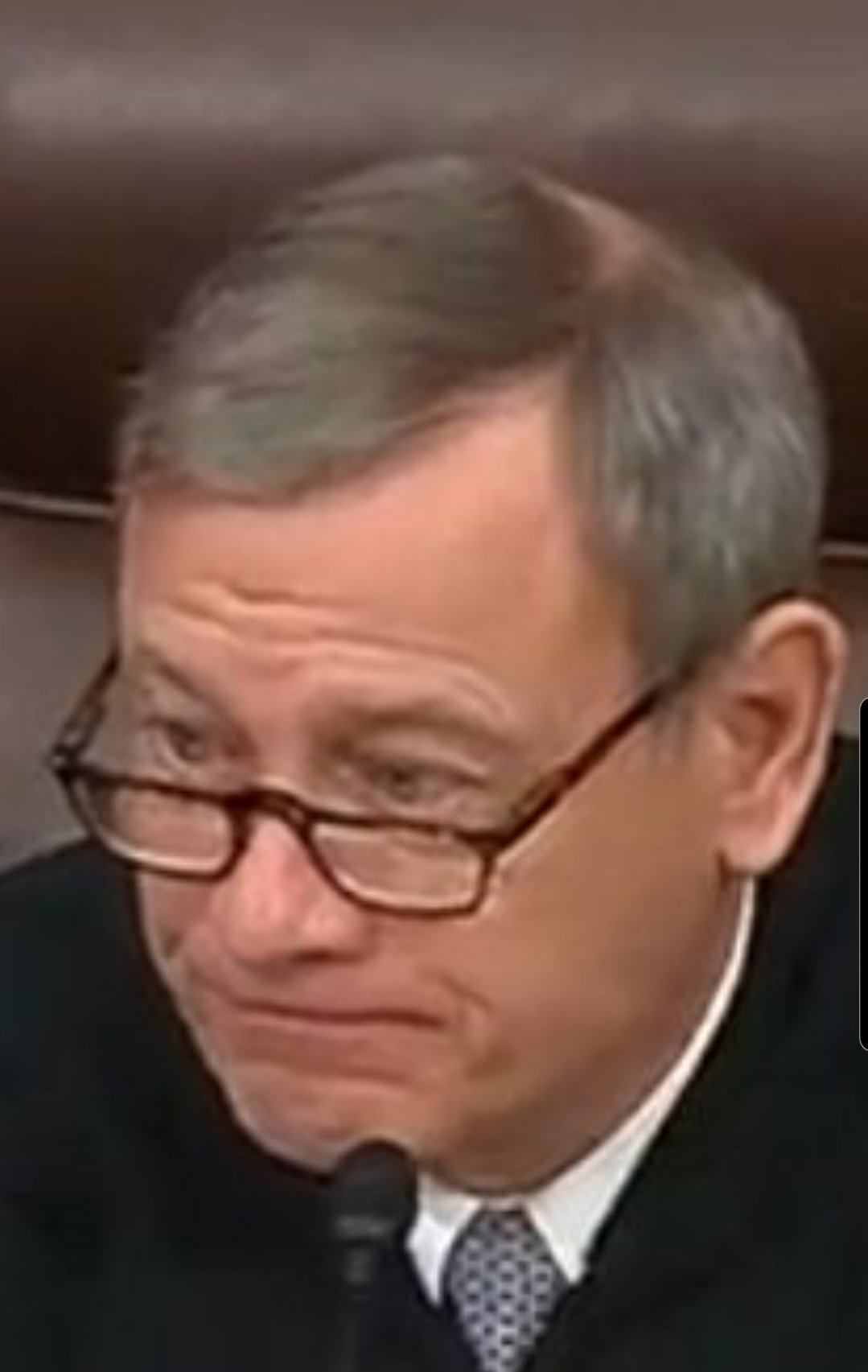
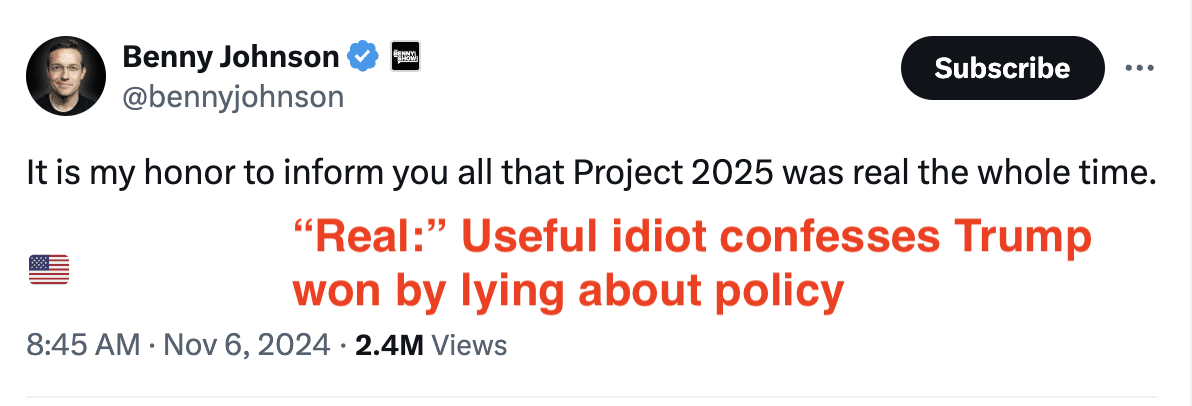
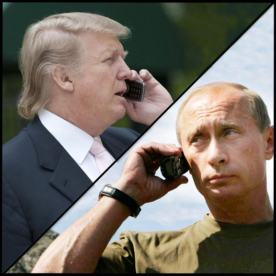 Public domain
Public domain